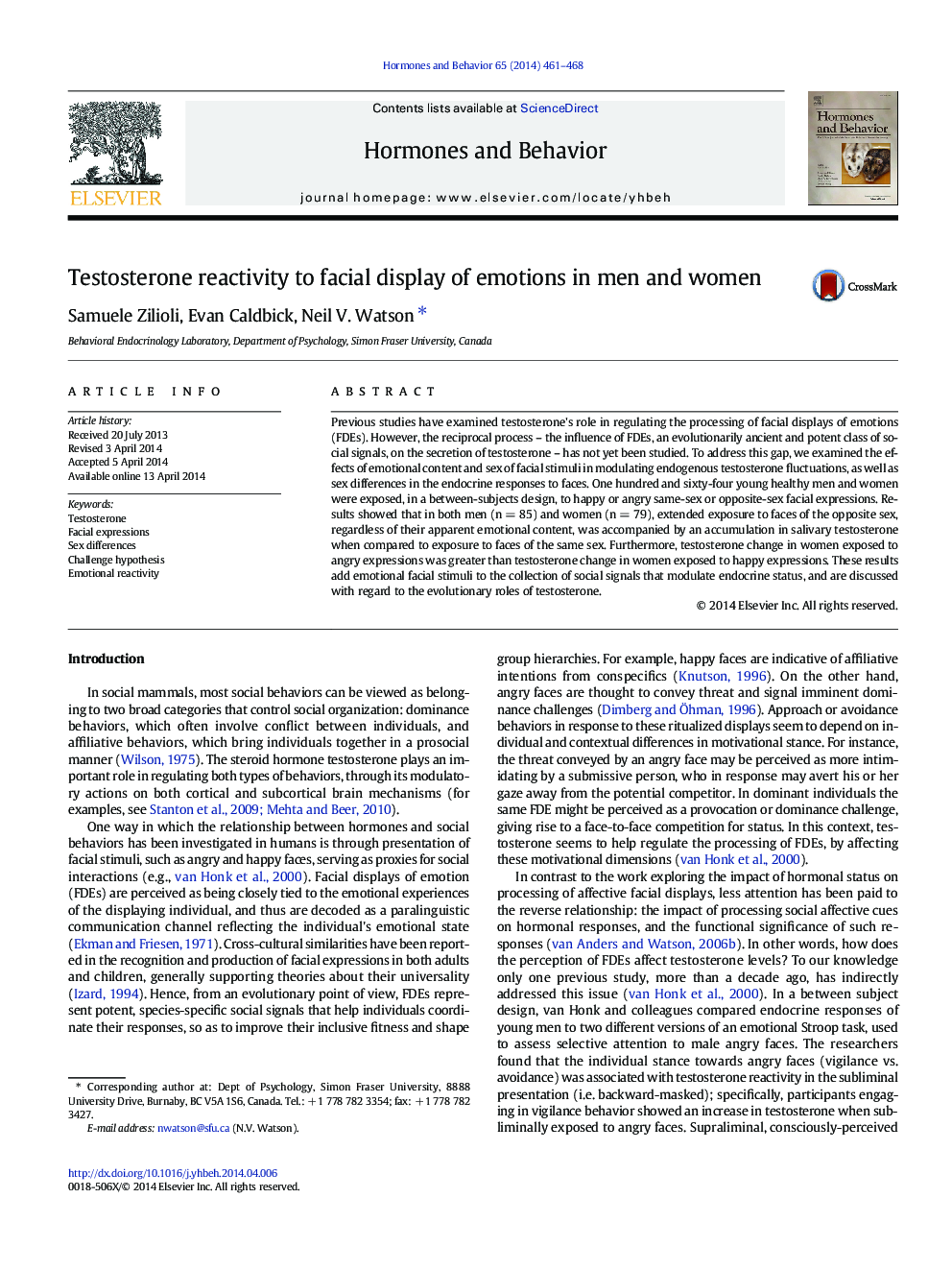| Article ID | Journal | Published Year | Pages | File Type |
|---|---|---|---|---|
| 10301167 | Hormones and Behavior | 2014 | 8 Pages |
Abstract
Previous studies have examined testosterone's role in regulating the processing of facial displays of emotions (FDEs). However, the reciprocal process - the influence of FDEs, an evolutionarily ancient and potent class of social signals, on the secretion of testosterone - has not yet been studied. To address this gap, we examined the effects of emotional content and sex of facial stimuli in modulating endogenous testosterone fluctuations, as well as sex differences in the endocrine responses to faces. One hundred and sixty-four young healthy men and women were exposed, in a between-subjects design, to happy or angry same-sex or opposite-sex facial expressions. Results showed that in both men (n = 85) and women (n = 79), extended exposure to faces of the opposite sex, regardless of their apparent emotional content, was accompanied by an accumulation in salivary testosterone when compared to exposure to faces of the same sex. Furthermore, testosterone change in women exposed to angry expressions was greater than testosterone change in women exposed to happy expressions. These results add emotional facial stimuli to the collection of social signals that modulate endocrine status, and are discussed with regard to the evolutionary roles of testosterone.
Related Topics
Life Sciences
Biochemistry, Genetics and Molecular Biology
Endocrinology
Authors
Samuele Zilioli, Evan Caldbick, Neil V. Watson,
